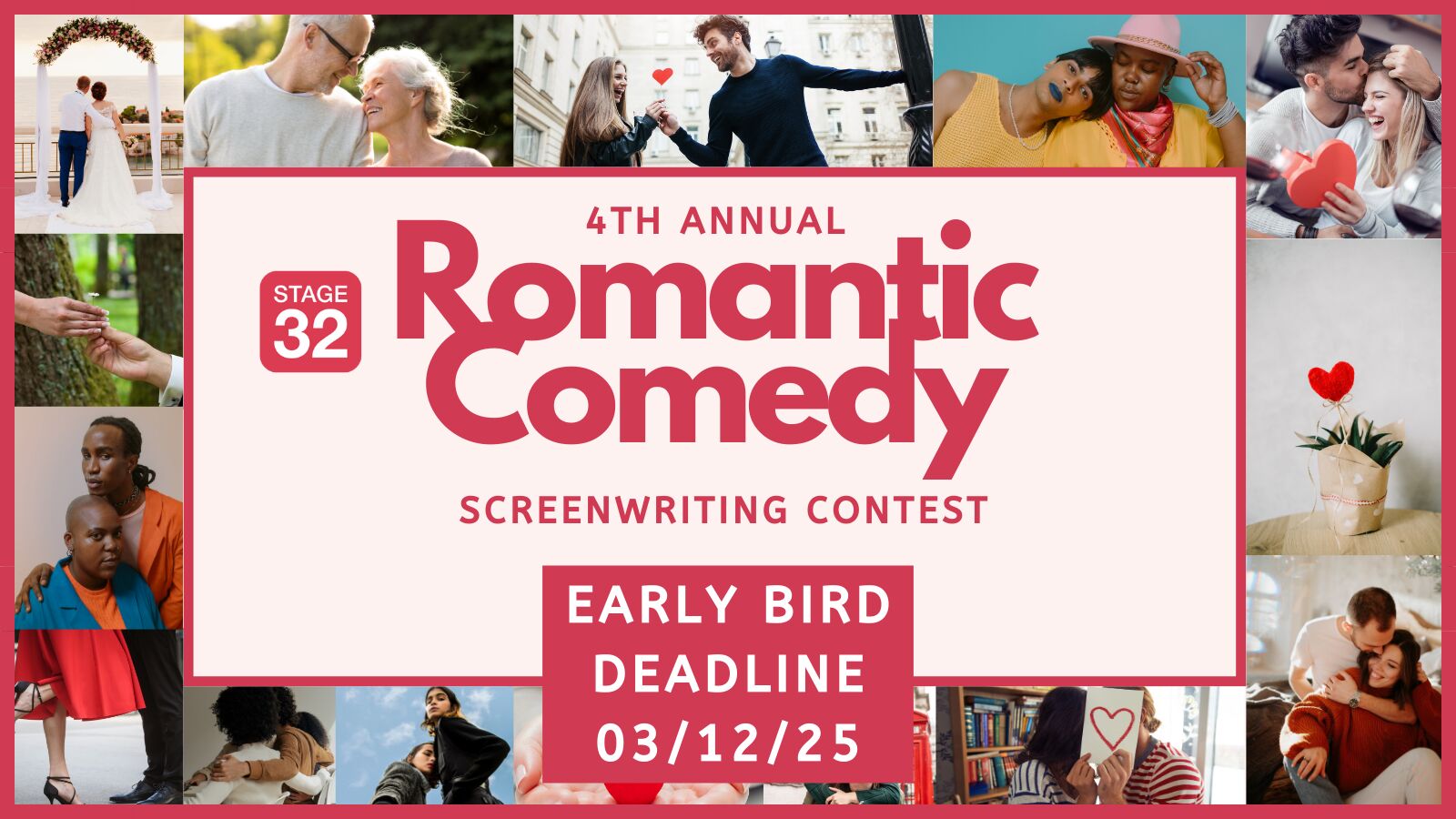
I just read a script where I thought the writer wasted a lot of valuable pages with setups and delivering information. Consequently, the early pages failed to spark my interest. Conversely, I just read the first 15 pages of another script and they absolutely kicked ass. The writer quickly established the world of their main character, his personality type and had a big event happen by page 10. And he didn't deliver forced exposition.
What do you do as a screenwriter to immediately catch the eyes of your reader?



2 people like this
I usually either have a shocking moment or establish a mystery in the first five or so pages, something to get the reader to ask, "Why did this happen?" I feel like it gives me room to breathe as I establish the rest of the world.
1 person likes this
JJ: That's a good method and one I use myself.
2 people like this
Quick set up and inciting incident must happen within the first 15 pages.
I’m not sure I’m successful at it yet if I’m being honest. But something apart from stuff already mentioned is I try to have some solid jokes up top to set the tone.
1 person likes this
Open on action, if you don't have action - then you need a really really compelling character. If you lose your audience by page 5 - you'll never get 'em back.
2 people like this
My two cents: Write effectively starting with the very first sentence. Build trust immediately. Me, I am not an "official" reader, but I have read hundreds and hundreds of scripts mostly for my own enjoyment and development. Now... if I can discern whether I wish to read further from just the first sentence to maybe the first half of page one, then I can only imagine how quick it is for those who do this professionally, in terms of considering the material seriously for whatever opportunities and possibilities. I've become such a "quick read" myself that I rarely make it to page 5 of a spec—I decide very quickly if I care to read further. With my own work, well, I keep my sleeves rolled up and keep at it. Page one needs to be exceptional and every page that follows needs to be even better. ;)
1 person likes this
A writer should write something that merits the attention of a reader. That could be an introduction to an interesting world...or a flashback to the old world....an action scene that is interesting....a dialogue between characters...a monologue...or even images with no dialogue at all. As long as the reader finds it captivating, unique and hard to put down....that's what matters, right?
Best fortunes in your creative endeavors, Phillip!
1 person likes this
Beth:
I agree. If it ain't grabbing me by page five, it's like the old Hank Snow song, I'm Moving on.
Billy C: Damn good fortunes for both of us, my friend.
1 person likes this
Haha! Actually, I‘m saying it’s much sooner: the very first sentence to maybe the first half of page one. I rarely make it to page five. ;)
Thus far, my method of writing starts off with an action sequence that pulls the reader in immediately, and sets up the want to know more from that inciting incident.
1 person likes this
Phillip, I try to get a scriptreader's attention with first-page dialog.
2 people like this
Raise a dramatic question. Action can do that, dialog too, character, setting, etc.
3 people like this
I'd be like JJ, establish a mystery early on. Ideally with an enticing action.
Ooooh, Beth is harsh!
1 person likes this
Beth Fox Heisinger I'm curious. Do you have an example of a first sentence that would turn you off reading past it? How much information do you glean from one sentence? Being (technically) a beginner, I'd like to know what kind of pitfalls I need to avoid. TIA
I think I may have to pay Beth for a review, if my fragile self can handle it.
1 person likes this
Not being “harsh.” Really. It’s an unfortunate truth. Most pros will tell you, they can tell much by the first line and the first page—hey, this knowledge keeps me up at night too! Lol! And, no, sorry, I will not give an example. I’ll just say it’s the intangible quality of the writing or lack there of that either keeps me reading or stops me immediately. Not some superficial choice or following or not following convention. Honestly, it’s the substance that shines and engages me and any and all readers. Read hundreds and hundreds of scripts of all kinds to better hone your barametor for what is good writing and what is not—you’ll see. ;) Oh, and, sorry, I am not a consultant nor do I do paid reviews. I do try to help here and there if/when I can. ;)
3 people like this
Beth is right. When a script crosses my desk, I fan thru it - I don't even read it right off. If I see lots of dense text blocks and little 'white' space on the pages - I know I'm in for a hard uphill slog. I'd just as soon not go there; but if they're paying me to read it - I must. It your text blocks are consistently 4 lines or over; you're trying to tell me more than showing me; bad, bad, bad... You can be a little more lenient in your opening scene to set location/time/place - but not much. You need to grab the reader's attention by the scene heading and that first sentence. Fail to do that and the reader will begin to wander off and it's hard (almost impossible) to get 'im back.
2 people like this
you need action, mystery, trauma or curiosity. whether this is done via dialogue, character or an action; it doesn't matter. Just make it happen. Bring the "move" in movie and keep the thing going forward.
I meant can you make one up. I'd never ask you to call someone out publicly.
1 person likes this
JJ: I know what you meant. ;) Again, either way... I’m not going to give an example. It’s the substance of the writing itself, not just the words. It is how they are used that matters. Without context, I don’t see how that is helpful. But... generally speaking, the biggest issue I see in scripts from new writers is overwriting and a sort of “clumsiness(?),” for lack of a better word. Again, read screenplays. Read shooting scripts from produced films, spec versions if you can get your hands on them, and read all kinds of posted spec scripts from all kinds of writers. Note different approaches and styles. MUD, Loving, Black Swan, Hell or High Water are fantastic scripts with sharp first pages. Always be informed about a film before reading the script, how and who produced, wrote, directed, its circumstances, etc. Other films, It Follows, Babadook, Get Out, John Wick (originally titled Scorn). Read, read, read. It will help inform your own development as a writer. Best to you! ;)
Shouldn't I be the one who decides if it's helpful to me? I do read scripts. I've seen great writing and I've seen meh writing and I've seen "how did this get made?" I just wanted to know what you specifically see that would turn you off after only one sentence. It's helpful to understand the minds of different readers since I'm going to be running into all kinds of them.
Don't worry about it though. I got the information I need.
2 people like this
Ah... You're welcome? Best wishes to you and with all your creative endeavors, JJ. :)
2 people like this
Last year’s annual black List best unproduced specs, about 20 of the 60 scripts on the list, have “we see” or a camera suggestion on page 1. Scripts by unknowns and working writers, repped and vetted by agents. Green book, Oscar winner for best screenplay, has “we see” and camera suggestions throughout.
I always try to start with an interesting imagine or an interesting way of showing something.
In my script Amy there is a police interview, but all the audio is from a different scene.
The Hostage starts with two cops dragging a handcuffed man into an abandoned building.
Valley starts with a crying woman tied to a tree in a forest.
Bad Day - ultra slow motion of a guy running through a factory with bullets bouncing all around him with a voice over about the events that got him here.
I usually start with a hook up scene to give the audience a taste of what's coming.
Some of those on the Annual Black List Industry Survey are writers who are trying to break in. Unknowns.
2 people like this
For my own writing, I open with whatever works best for the specific script and story I am working on. I usually know my ending first, so I spend a lot of time trying different beginnings that best set up that ending. I utilize all the writing tools that are available to me—that are available to anyone, no matter who you are—and use them as effectively and judiciously as I can. ;)